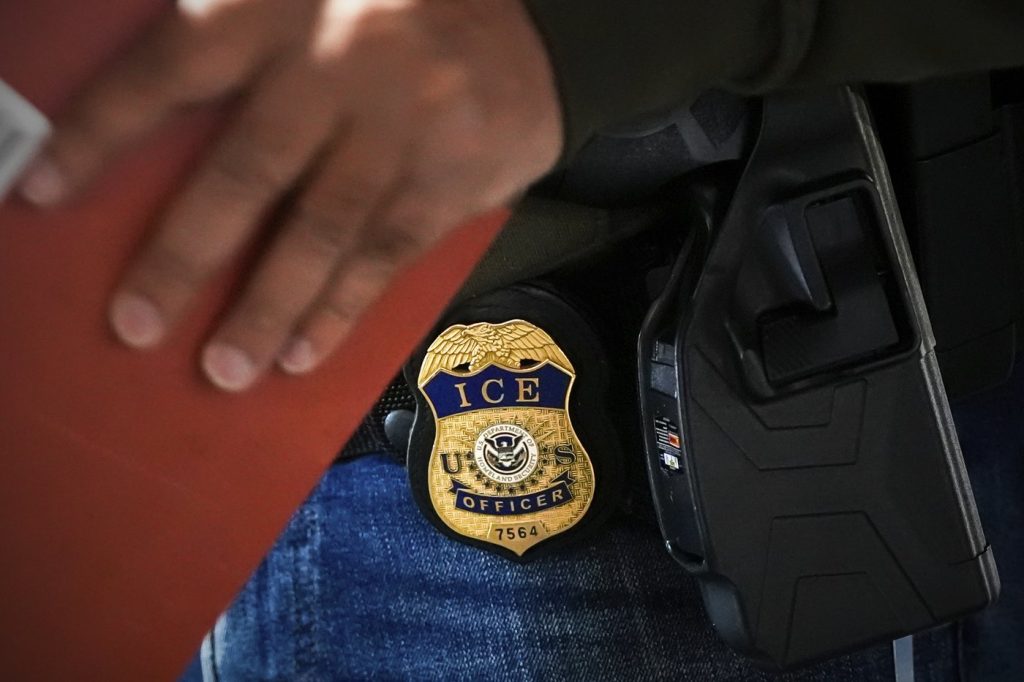HARRISBURG, Pa. (AP) — In recent days, Immigration and Customs Enforcement (ICE) agents have carried out deportations that have resulted in the separation of families, specifically affecting a Cuban-born mother and a U.S. citizen child, alongside several Honduran-born mothers and their U.S. citizen children. This has raised critical questions regarding the deportation practices employed by ICE, particularly the timing and methods used during these operations.
The deportations occurred amid ongoing litigation regarding the Trump administration's immigration policies, which many argue infringe on fundamental rights. According to lawyers representing the affected families, the women were taken into custody while attending routine check-ins at ICE offices, with little to no opportunity to consult with legal counsel or their family members before being deported within three days or less.
The American Civil Liberties Union (ACLU), the National Immigration Project, and other advocacy organizations have condemned the actions of ICE, describing the deportation of U.S. citizen children alongside their mothers as an alarming and growing abuse of power. Gracie Willis, from the National Immigration Project, emphasized that the mothers were not given a fair chance to decide whether their children should remain in the U.S., noting that caregivers were available to support the children in the country.
One of the children deported, a 4-year-old battling a rare form of cancer, and her 7-year-old sibling were sent back to Honduras just a day after being arrested with their mother. In another case involving a 2-year-old girl, U.S. District Judge Terry Doughty in Louisiana expressed skepticism about the legitimacy of the deportation, questioning whether the government had adhered to proper procedures. The girl's father, who wishes for her to stay in the U.S., strongly contested ICE's claim that the mother wanted the girl deported.
The Honduran mother, who is pregnant, was detained at an ICE office in New Orleans during a scheduled check-in. Along with her 2-year-old daughter, she and her 11-year-old sister were deported shortly after their arrest. Judge Doughty attempted to speak with the detained woman while she was en route to Honduras but was informed that communication was no longer possible because she had already been deported.
In a related incident in Florida, Heidy Sánchez, a Cuban-born woman and mother of a 1-year-old daughter, was taken into custody during her regular check-in at an ICE office in Tampa. Her lawyer, Claudia Capizares, reported that Sánchez was flown to Cuba two days later despite still breastfeeding her daughter, who suffers from seizures. Capizares claimed that she attempted to file paperwork to contest the deportation but ICE refused to accept it, insisting that Sánchez was already gone.
Capizares criticized ICE for not considering humanitarian factors in their decision-making process, suggesting that the agency is under pressure to meet specific deportation quotas without regard for individual circumstances. Sánchez had an outstanding deportation order due to a missed immigration hearing in 2019 that had led to her detainment for nine months. After her release in 2020, she was required to check in regularly with ICE, yet the consequences of this system have now resulted in her abrupt deportation.
The actions of ICE in these cases have ignited widespread criticism, highlighting both the psychological toll of family separations and the urgent need for reform in immigration enforcement practices. Legal representatives and advocacy groups continue to push for accountability and a reassessment of the policies that allow such deportations to take place.












